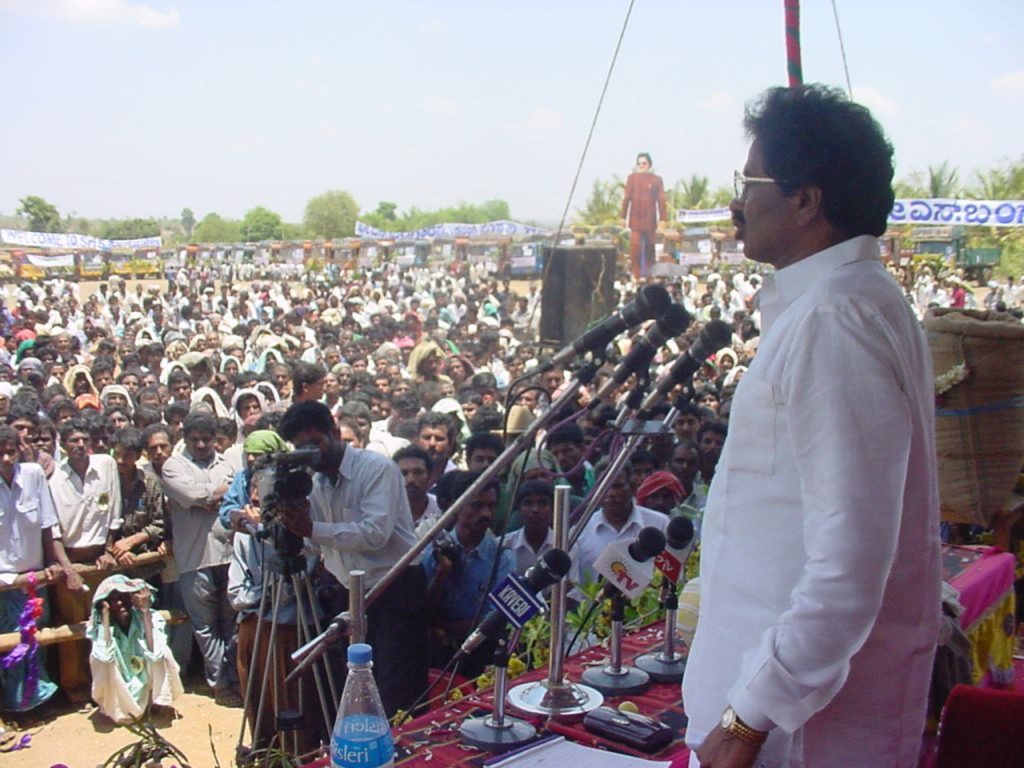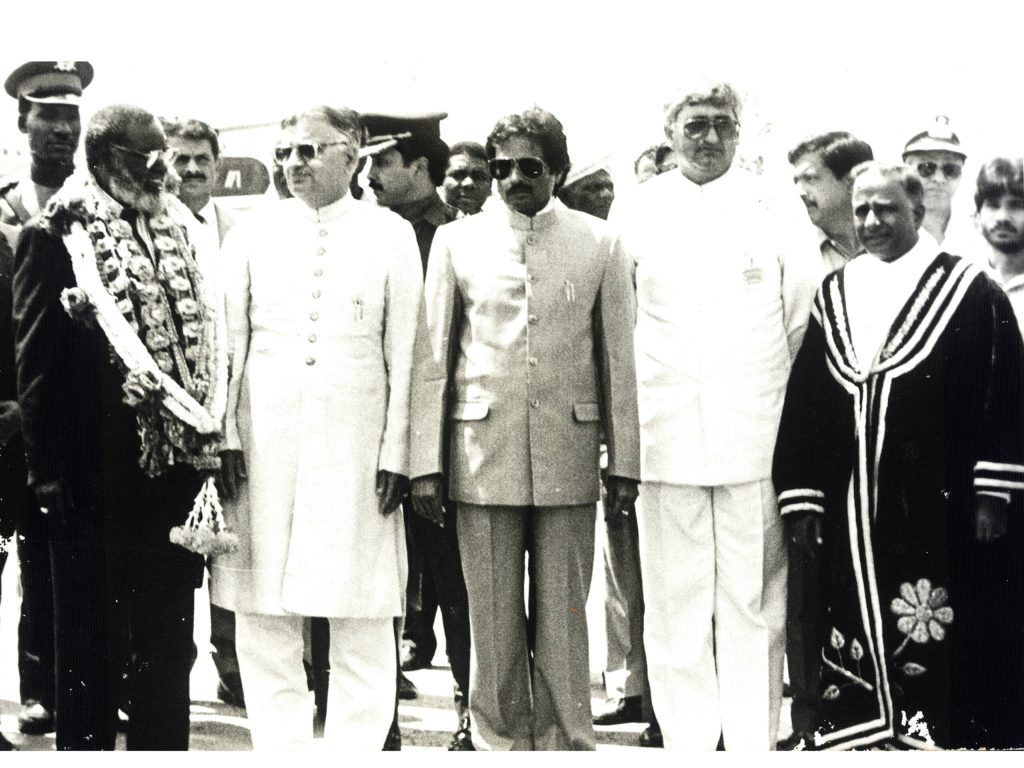S. Bangarappa’s Stand on the Cauvery Water Dispute as Chief Minister of Karnataka
- Home
- S. Bangarappa’s Stand on the Cauvery Water Dispute as Chief Minister of Karnataka
The Cauvery River water dispute is one of the longest-running and most contentious inter-state water conflicts in India, involving Karnataka and Tamil Nadu. During his tenure as the Chief Minister of Karnataka (1990-1992), S. Bangarappa took a firm stand in defense of the state’s interests, particularly concerning the release of Cauvery water to Tamil Nadu. His actions, which included defying a Supreme Court order, marked a significant moment in Karnataka’s political history and showcased his determination to protect the rights of the state’s farmers.
The Cauvery Water Dispute: A Brief Overview
The Cauvery water dispute centers on the allocation of water from the Cauvery River, which flows through both Karnataka and Tamil Nadu, along with Kerala and Puducherry.The river is vital for irrigation and agriculture in both states. However, differing rainfall patterns, population growth, and agricultural needs have led to disputes over water-sharing for decades. Historically, Tamil Nadu has received a larger share of the water, which Karnataka has contested, particularly as its own agricultural regions grew increasingly reliant on Cauvery’s waters.

Bangarappa’s Tenure and the Supreme Court Ruling
In 1991, the Supreme Court of India issued an interim order directing Karnataka to release 205 TMC (thousand million cubic feet) of water annually to Tamil Nadu, a decision that caused considerable unrest in Karnataka, especially among the farming community. Many in Karnataka believed that the allocation was unfair, as it did not take into account the growing needs of Karnataka’s farmers, especially in the Mandya and Mysore regions, where the Cauvery is crucial for irrigation.S. Bangarappa, then the Chief Minister of Karnataka, faced immense pressure from both the judiciary and the people of the state. Farmers in Karnataka protested vehemently against the order, demanding that the state government prioritize their needs over Tamil Nadu’s. Faced with this mounting tension, Bangarappa decided to take a stand that would define his political legacy.
Defiance of the Supreme Court’s Order
In a bold and controversial move, S. Bangarappa refused to release the Cauvery water to Tamil Nadu as directed by the Supreme Court. This decision was driven by his commitment to protect the interests of Karnataka’s farmers, who were already struggling with water scarcity. Bangarappa’s stance was clear: Karnataka could not afford to release the water without jeopardising the livelihood of its own people.This defiance of the Supreme Court order was seen as an act of courage by many in Karnataka, where he garnered widespread support, especially from the farming community. His decision not to release the water was framed as a fight for justice for Karnataka’s agrarian population, who had long felt marginalised in the ongoing water dispute.
Political and Legal Ramifications
Bangarappa’s decision had significant political and legal consequences. The refusal to comply with the Supreme Court’s order triggered a constitutional crisis, as it was seen as a challenge to the judiciary’s authority. The central government at the time, led by Prime Minister P.V. Narasimha Rao, faced immense pressure to intervene and resolve the standoff between Karnataka and Tamil Nadu. The situation became even more complex as protests erupted in both states, further fueling the tensions between them.Despite the legal risks, Bangarappa remained steadfast in his decision, maintaining that Karnataka’s interests should come first. His refusal to release the water even after the court’s directive elevated him to hero status among many in Karnataka, while drawing sharp criticism from political leaders and the public in Tamil Nadu.

Legacy of the Stand
S. Bangarappa’s defiance in the Cauvery dispute became a defining moment in his political career. His unwavering stance resonated with Karnataka’s farmers, who saw him as a protector of their rights. While his actions sparked a heated political and legal debate, they also highlighted the deep-rooted challenges in resolving inter-state water disputes in India.The Cauvery dispute continues to be a sensitive issue between Karnataka and Tamil Nadu, with periodic flare-ups and ongoing legal battles. However, Bangarappa’s bold stand during his tenure as Chief Minister remains a significant chapter in the history of the conflict. His decision not only reflected the complexities of water-sharing agreements but also emphasized the importance of leadership that prioritizes the well-being of its people, even in the face of judicial authority.
In Karnataka, Bangarappa is remembered as a leader who was willing to take a tough stand for the state’s farmers, regardless of the political or legal consequences. His actions during the Cauvery dispute symbolize his dedication to social justice and his fierce determination to protect Karnataka’s agricultural community.
